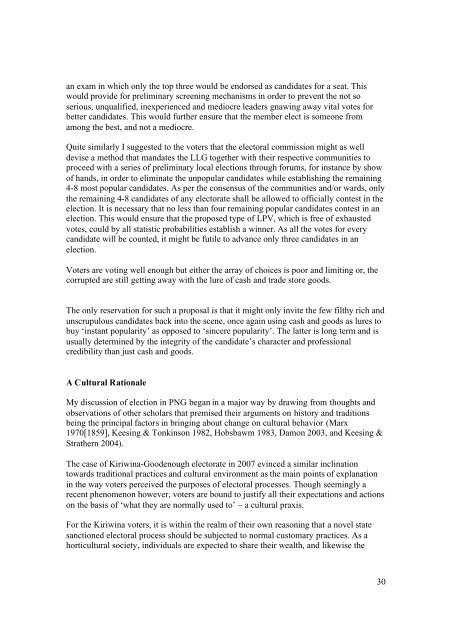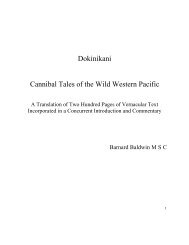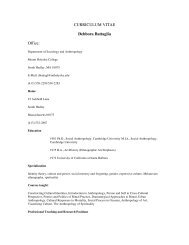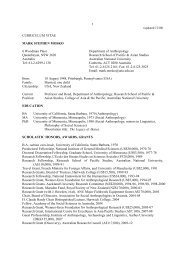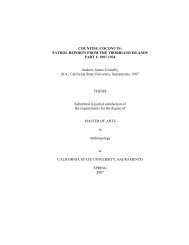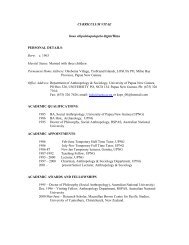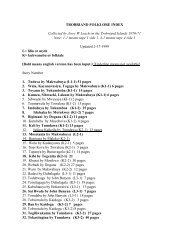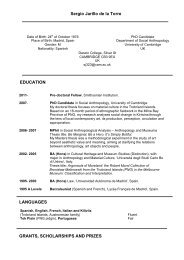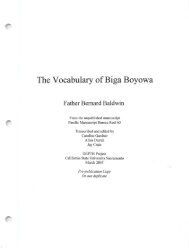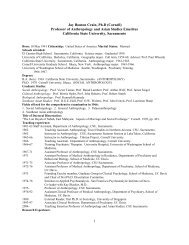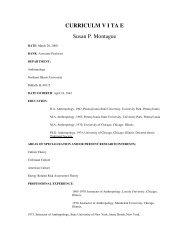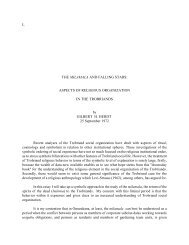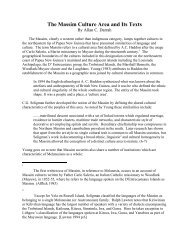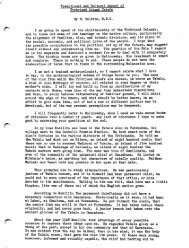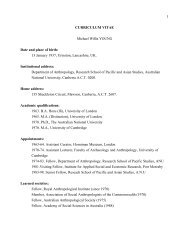Download a PDF of this paper - Trobriand Islands
Download a PDF of this paper - Trobriand Islands
Download a PDF of this paper - Trobriand Islands
Create successful ePaper yourself
Turn your PDF publications into a flip-book with our unique Google optimized e-Paper software.
an exam in which only the top three would be endorsed as candidates for a seat. This<br />
would provide for preliminary screening mechanisms in order to prevent the not so<br />
serious, unqualified, inexperienced and mediocre leaders gnawing away vital votes for<br />
better candidates. This would further ensure that the member elect is someone from<br />
among the best, and not a mediocre.<br />
Quite similarly I suggested to the voters that the electoral commission might as well<br />
devise a method that mandates the LLG together with their respective communities to<br />
proceed with a series <strong>of</strong> preliminary local elections through forums, for instance by show<br />
<strong>of</strong> hands, in order to eliminate the unpopular candidates while establishing the remaining<br />
4-8 most popular candidates. As per the consensus <strong>of</strong> the communities and/or wards, only<br />
the remaining 4-8 candidates <strong>of</strong> any electorate shall be allowed to <strong>of</strong>ficially contest in the<br />
election. It is necessary that no less than four remaining popular candidates contest in an<br />
election. This would ensure that the proposed type <strong>of</strong> LPV, which is free <strong>of</strong> exhausted<br />
votes, could by all statistic probabilities establish a winner. As all the votes for every<br />
candidate will be counted, it might be futile to advance only three candidates in an<br />
election.<br />
Voters are voting well enough but either the array <strong>of</strong> choices is poor and limiting or, the<br />
corrupted are still getting away with the lure <strong>of</strong> cash and trade store goods.<br />
The only reservation for such a proposal is that it might only invite the few filthy rich and<br />
unscrupulous candidates back into the scene, once again using cash and goods as lures to<br />
buy ‘instant popularity’ as opposed to ‘sincere popularity’. The latter is long term and is<br />
usually determined by the integrity <strong>of</strong> the candidate’s character and pr<strong>of</strong>essional<br />
credibility than just cash and goods.<br />
A Cultural Rationale<br />
My discussion <strong>of</strong> election in PNG began in a major way by drawing from thoughts and<br />
observations <strong>of</strong> other scholars that premised their arguments on history and traditions<br />
being the principal factors in bringing about change on cultural behavior (Marx<br />
1970[1859], Keesing & Tonkinson 1982, Hobsbawm 1983, Damon 2003, and Keesing &<br />
Strathern 2004).<br />
The case <strong>of</strong> Kiriwina-Goodenough electorate in 2007 evinced a similar inclination<br />
towards traditional practices and cultural environment as the main points <strong>of</strong> explanation<br />
in the way voters perceived the purposes <strong>of</strong> electoral processes. Though seemingly a<br />
recent phenomenon however, voters are bound to justify all their expectations and actions<br />
on the basis <strong>of</strong> ‘what they are normally used to’ – a cultural praxis.<br />
For the Kiriwina voters, it is within the realm <strong>of</strong> their own reasoning that a novel state<br />
sanctioned electoral process should be subjected to normal customary practices. As a<br />
horticultural society, individuals are expected to share their wealth, and likewise the<br />
30


